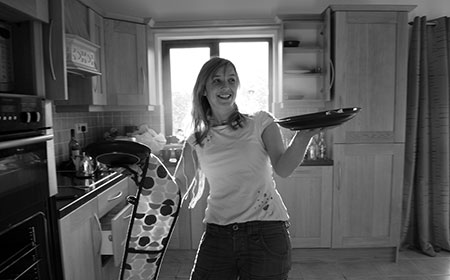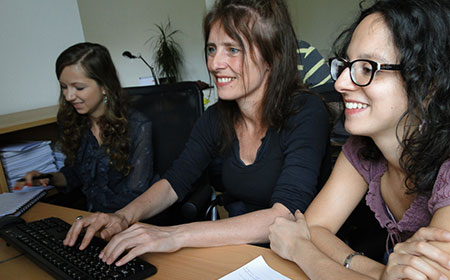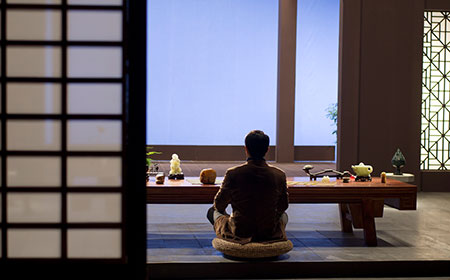Why Your Morning Routine Can Make or Break Your Career
“We are what we repeatedly do. Excellence, then, is not an act, but a habit.” – Aristotle
Think of your home as your base camp of operations from which you attack the day. Are you adequately arming yourself for the skirmishes you’ll face before sundown? Is your mind sharp and focused, ready to solve problems, prove your worth, and advance your career over the next hill? Whether we realize it or not, all of us have a morning routine. Most of us craft this routine around maximizing sleep: wake up as late as possible to still make it in on time, get ready quick, eat fast, and go. But we’re here to tell you why your work life will prosper when you treat your morning with the respect it deserves.
MORNING IS THE BEST TIME OF DAY TO GET THINGS DONE:
The book on radical leadership you’ve been meaning to read. The online course you’ve been meaning to start. The blogs with the great work advice (ahem) you’ve been meaning to catch up on. All of these are activities that would be so good for you as a person and an employee, and you’re so going to undertake them when you have time. But haven’t you heard, it’s the people who make time who have it? The most successful people recognize that as the day goes on, the number of time-suckers vying for your attention only multiplies. Morning is the best time to do these projects, when you’ve got the fresh willpower and the promise of a new dawn.IT’S A CHANCE TO ATTACK THE DAY PROACTIVELY:
By definition, being proactive means acting ahead of time to plan or strategize for an expected difficulty. If you don’t make a habit of doing this in the morning, you run the risk of dealing with problems reactively and on-the-fly, without the benefit of a solution in mind. The metaphor for this approach is “putting out fires,” which implies some stuff is going to get burned while you’re trying to find the extinguisher. CEO Steve Murphy recommends simply writing out your thoughts for the day on a yellow pad each morning.IT AFFECTS THE REST OF YOUR DAY’S PERFORMANCE:
Your stress levels are highest in the morning. If your routine consists of waking up rushed, throwing your things together, grabbing coffee and a toaster pastry, and launching out the door, you’ve perfectly prepared yourself to be harried by the time you get to work and need to focus. By mid-afternoon the adrenaline has worn off, and you’re drained. Creating a morning routine that is slow-paced gives your stress level time to come down while you make and enjoy a healthy breakfast (see below), read, pray or meditate, see your kids off to school, and generally prepare for the day. To give yourself more morning time, get chores like making your lunch or ironing what you’re going to wear out of the way the night before.EXERCISING IN THE MORNING GIVES YOU THE MOST BENEFIT:
Obviously anything that makes you physically healthier helps you in all areas of life, and work is no exception. But exercising after work at the end of the day involves the danger of interfering with sleep: the evidence indicates a tough workout within two hours of bedtime can hurt your ability to fall asleep. Research also suggests people who exercise in the morning are better at making a habit of it. They also get a mood boost that last for hours, even after a 20-minute workout, according to studies.MORNING IS HOME TO THE MOST IMPORTANT MEAL OF THE DAY:
Again, being in good health has no downside for your career. And though some of those old phrases we’ve all heard are bunk, this one is absolutely true: breakfast is the most important meal of the day. Eating a healthy morning meal improves your concentration and mental performance, both great benefits for work life. If your career involves employing muscles below the neck, there’s good news for you as well, as you increase endurance and strength with the right breakfast foods. In the “breaking your career” category, we have to put drinking coffee. Sorry, but java can lead to higher stress levels, cause anxiety, raise your blood pressure and heart rate, and interfere with sleep. All the more reason to give yourself time to wake up naturally in the morning.IT CAN HELP YOU KEEP YOUR LIFE PLAN IN MIND:
As we mentioned, morning can be the time you do those things you’ve intended to do for a while. While some of them may be minor odds and ends, some of them may involve major goals you want to achieve in your life, like writing a novel or becoming bilingual. Yes, you can work on these on the weekends if you’re dedicated, but even if you do there are still five days out of the week where you could be making progress on your long-term plans. A solid morning routine lets you step back from thoughts of the immediate future and really consider where your career is headed and what you need to do today to continue moving in the right direction.IT CAN MAKE OR BREAK YOUR CREATIVITY:
If you’re counting on coming up with a brilliant business idea or money-saving practice to get you promoted, you could be hurting your chances by the way you start the day. The best elements for fostering creativity take place, you guessed it, in the morning. A recent study published in scientific journal Thinking and Reasoning showed that in the time after rising when you’re half-awake and unfocused, you often make connections between things that you probably would not make when you’re fully awake. Rushing through this time limits your chances of inspiration striking. Another study in Psychological Science found that “cognitive flexibility” is highest when our mood is positive, as it is when we take our time getting ready and are not stressed.A HEALTHY ROUTINE REQUIRES GETTING ENOUGH SLEEP:
Once you start cutting into your sleep time in the morning to get up earlier, you’ll have to go to bed earlier to keep from feeling groggy during the day. The beauty here is that many researchers believe each hour of sleep you get before midnight is worth two hours after 12 a.m., meaning you get all those health benefits in twice the proportion when you get to bed earlier, notably your ability to learn and remember, an improvement in your mood, and a healthy immune system so you don’t have to take as much sick time.Sourced From:http://www.onlinecollege.org









No comments:
Post a Comment